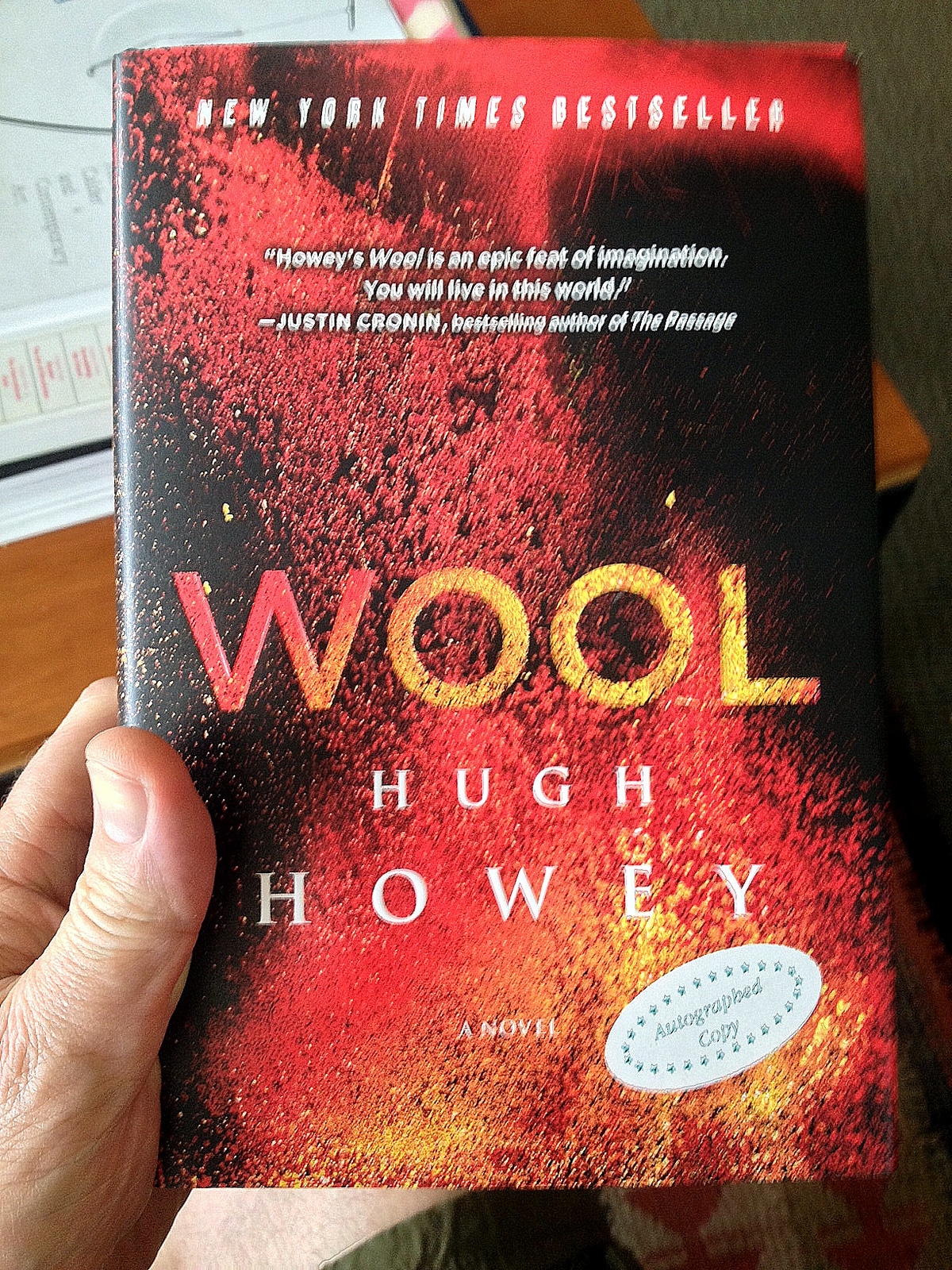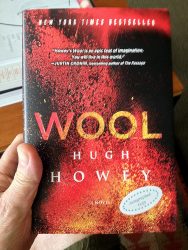Publishers Are Becoming More Like Movie Studios Every Day


I’ve never been convinced of the truth of the premise, but The Guardian has inadvertently gathered a bunch of examples which show major publishers picking up the book rights to a novel at the same time that studios swoop in to acquire the movie rights.
Last week The Guardian published an article about indie authors being snapped up by Hollywood. On first reading, it looks like the writer failed to notice that many of the mentioned titles are published by traditional publishers and that one (Fifty Shades ) has a lot of people in publishing arguing that it had never been self-published in the first place (opinions are divided on this point).
Digging into the background of the story, however, revealed a more interesting story.
After watching Quentin Tarantino’s Kill Bill, self-published author Mark Dawson was inspired to create his own answer to the film’s heroine Beatrix “Black Mamba” Kiddo. And now Dawson – and his character government-employed assassin Beatrix Rose – are set to take on Hollywood, with his series on the verge of a major television deal, complete with a “triple A” producer.
…
Details of Dawson’s TV deal are under wraps, and he says it is expected to be finalised in the next few days. But his is just the latest in a line of deals between studios and self-published authors, including AG Riddle and Hugh Howey, who have been targeted by studios after the successes of Andy Weir’s The Martian and EL James’s Fifty Shades franchise. AG Riddle’s Departure series was scooped up by Fox-based producer Steve Tzirlin in a six-figure deal, while Howey’s dystopian sci-fi novel Wool was signed up by Ridley Scott and 20th Century Fox.
Mark Dawson’s series was picked up by Amazon two years ago, and is now published by Thomas & Mercer. He’s about to sell thee movie rights.
Andy Weir sold the book rights and the movie rights to The Martian the same week.
AG Riddle’s deal with HarperCollins for Departure was announced at the same time as the movie deal.
And Hugh Howey’s print-only deal with S&S was announced 6 months after he sold the movie rights. (The long delay can be attributed to Howey repeatedly turning down offers.)
I know the comparison isn’t perfect; movie studios frequently buy books just in case they may one day want to make a movie. Publishers, on the other hand, expect to put the book on the market ASAP.
But I for one find it interesting that trade publishers are striking deals alongside studios. It used to be that trade publishers got the book first, long before it was shopped to the studios, but now we see them scrambling to lock down a best-seller after the fact.
image by JoeInSouthernCA

Comments
Jim Heskett May 23, 2017 um 3:08 pm
50 shades was originally published as fan fiction, wasn’t it? doesn’t that count as self-pubbed?
Mackay Bell May 23, 2017 um 3:27 pm
It seems like that should count as far as I’m concerned. The larger point being that it was developed, written and then discovered by fans outside of the traditional publishing system. Likewise, books that are first self-published, like the Martian, (and Hugh Howey’s work) and then picked up my traditional publishers count to me as self-published for the same reasons.
It should not be surprising, or count against the advantages of self-publishing, that once a book breaks out, the writers have a lot of motivation to strike deals with big companies, including film and traditional print. That’s just taking advantage of an established franchise.
Nate Hoffelder May 23, 2017 um 5:42 pm
Except the book didn’t exist until the publisher released it. it was only on a website as incompletely edited pages before that point.
That’s why I go the other way.
Mackay Bell May 23, 2017 um 7:29 pm
Cup half empty or half full. It can be argued either way on technical grounds. But the author undoubted made a much stronger deal because it already had some traction on the internet, and the publisher took advantage of that word of mouth, and also publicized the fact that it was popular fan fiction. (Also, the original publisher was a smaller company that was even more dependent on internet word of mouth from the self-published fan fiction.) Given it’s unusual success (the writer also becoming a producer on the hugely successful film) dismissing the fact that it was first self-published as fan fiction seems odd. It’s success is more likely a result of the things that made it less like a traditionally published book rather than the things that make it the same.
We’re still in the very early years of self-publishing. Film production has about a five year development window. So it makes sense that one of the first big breakouts might be more of a mix from the "early experiments" in self-publishing. And I’m pretty sure the overall perception in Hollywood, among development executives, is that 50 Shades and The Martian were "self-published." They’re looking for more books like that. I think we’re going to see more and more movies produced from works that clearly fit self-published category. Possibly even without a major publisher handling the print sales.
Nate Hoffelder May 23, 2017 um 10:09 pm
I’m going to amend the post to say opinions ar divided on this point.
Will Entrekin May 24, 2017 um 8:58 am
I wouldn’t think it would. Publishing on one’s own website, as Weir did, sure. Heck, I started serializing my first novel before publishing it.
But I think there’s a difference between that and posting in a more limited forum, especially when one is not doing so with commercial intention. There’s also the fact that James had to revise the manuscript, changing the names Edward and Bella to Christian and Anastasia, respectively, when The Writers Coffee Shop published it. Further, I think the fact that it was fan fiction works against it; people can write fan fiction, and people can read fan fiction, but mostly you can’t publish fan fiction because it’s pretty much illegal to do so, with some exceptions (mostly I think with regard to copyright/public domain).
But then, I’m probably even further old school in that I think the commercial aspect has a big part in determining. Like, I know Weir (and Scalzi) both serialized their novels on their websites. Dunno if they ever anticipated further usage from them. Howey, on the other hand, rather than serializing on his website, serialized on Amazon, which is part of the commercial marketplace.
Not saying monetization is the deciding factor, but I think it’s a big one. There’s a difference between posting on WordPress online and going to Amazon/Kobo/etc., even if that difference is mostly one of intention.
Otherwise, technically, everything is "self-publishing." Tweets? "Self-publishing" in 140 characters. Instagram? "Self-publishing" photos.
Carly May 23, 2017 um 3:53 pm
I think a lot of this has to do with the contraction in both traditional publishing and in movies. It’s harder for both to bet on an unknown quantity, so they’re both more apt to go after someone who already has an established fan base.
Studios are competing against streaming services and people not going to the movies, and book publishers are up against self publishing among other issues, so it makes sense that they can mitigate risk this way.
Frank May 24, 2017 um 9:00 am
Since the version of Fifty Shades on Fanfiction.net is pretty much the same as the one published by The Writer’s Coffee House (the main change was removing Twilight character names), I consider the fan fiction version self-publishing.
BDR May 24, 2017 um 9:19 am
The reality is that Hollywood does not take chances and unless you know a guy who knows a guy, your book isn’t gonna get produced.
The easiest way to "know a guy" is through the Big 5 and that’s what you’re seeing.
Mackay Bell May 24, 2017 um 2:00 pm
It’s not that simple. Like all big companies, the Big 5 have certain mandates of what books to push. If you aren’t one of the lucky ones, they aren’t going to make any effort to get your book noticed, and might even work against you by trying to shift a potential buyer to another title (or simply not returning an inquiry). Also, the people working to promote books from the Big 5 have relationships (good and bad) with certain studios that might help you, or might hurt you. (A producer might stop returning the calls of an overly aggressive book editor who is trying to sell something they don’t want.)
On top of that, Hollywood has hundreds of independent producers who scour the internet looking for deals and new properties that have been overlooked. During a discussion on KBoards, there were many indy writers who were contacted independently for book options (and some even made deals). Of course, the downside of this is that most of those indy deals will probably be low ball options, and won’t get made, but a low ball option is better than nothing.
Certainly, a favored writer with a hit book at a big publisher has huge advantages in getting noticed by the big studios. But it’s just a question of time before more and more indy writers get lucky and are in the right place at the right time to get something produced. It doesn’t hurt that the kind of books indy writers focus on (genre fiction) are exactly the kind of stories that are more popular these days as movies.
Mark Williams – The International Indie Author May 24, 2017 um 1:03 pm
For me the issue rests on at what point the deal was struck.
Neither Hollywood nor Big Pub came calling for Fifty Shades the strength of fan fiction. It came after The Writers Coffee Shop sold the title in enough volume to get noticed by Big Pub which gave it that further reach to get noticed by Hollywood.
The Dawson deal comes in the second year of the series in question being out under Thomas & Mercer’s brand and Amazon’s in-house exposure. Hard to see how this deal itself can therefore be attributed a self-publishing success. (Which is not in any way to deny Mark Dawson as an inspiring self-publishing success story).
What is ludicrous is to assert, as one report recently has, that EL James is the world’s highest-paid self-pubbed author based on the hundreds of millions trad pub sold for her.
Mackay Bell May 24, 2017 um 2:26 pm
The report you cite confirms what I said before. Which is the perception in the larger media (and Hollywood) is that 50 Shades was self-published. Sure, you can argue on technicalities that it wasn’t, and I’m sure traditional print publishers want to do that, but it can also be argued (correctly) by indy fans that it was.
We don’t know for sure what would have happened if the book hadn’t been picked up by a major publisher. You seem to argue that it never would have become a movie. However, it’s also possible that the book would have continued to grow from the Writer’s Coffee Shop and become a movie regardless (after all the writer was a TV producer and pretty savvy about such things). It’s also quite likely that if Writer’s Cafe never picked it up (and no traditional publisher did), that the writer would have eventually put it on Amazon and sold it directly herself. We don’t know for sure what would have happened without a traditional deal. It might have been a huge ebook smash given it’s fanbase and gotten just as much attention.
So here are the facts:
1. It was originally self-published as fan fiction.
2. Outside of the indy wars, it’s perceived by most people as self-published.
The other details strike me as an insider argument that isn’t particularly enlightening about whether Hollywood Studios are likely to produce more self-published stories in the future.
Will Entrekin May 24, 2017 um 3:52 pm
Except that the continued conflation of 50 Shades as "self-published" combines with the general narrative propagating that "self-publishing" success stories are all about sales and deals. This of course verges into intersubjective discussions about taste and quality but within the corporate realm (including both publishers and media), the trilogy is derided as a terrible, poorly written book — which means that their continued lumping it in with "self-publishing" is just another way to continue dismissing the indie world.
So I’d argue that the facts are
1. It was originally posted in fan fiction forums.
2. Outside of the indie world, much of the corporate world perceives it as "self-published."
I’m sure studios will continue to snap up content that has already demonstrated success in the marketplace, yes.
Mark Williams – The International Indie Author May 24, 2017 um 1:39 pm
On the bigger picture of publishers becoming like film studios, I would argue just the opposite.
A blockbuster film costs far far more to produce than a blockbuster book – the Guardian posts suggest upwards of $100 million for a typical film.
The Martian costs $108m. It raked in over $700m inc. dvd sales. $660 at the box office. The film had pretty much global release from day one, going out to well over sixty countries in 2015.
Even the Obamas-PRH deal only went for $60 million and that’s a significant outlier.
Blockbuster movies will continue to be produced at crazy costs, but at the same time we have a far bigger, and easily reachable, global audience for less-costly productions, and as Amazon, Netflix et al show, there are plenty of producers ready to step up to meet that ever-expanding demand.
Publishers have the same global reach with products that mostly cost a fraction of even a cheap TV show.
In both cases – film and book – production will continue to expand as the Global New Renaissance gets into second gear, with plenty of room for producers at all levels and backgrounds.
Robert Nagle May 25, 2017 um 11:16 am
Bigger publishers are in a better position to market a book project to the studios than indie publishers. It’s also a source of considerable income for them (especially because a movie or TV show brings more book sales down the line). That’s a reason why the Big 5 acquire a lot on book projects or series which can lead to movies.
I don’t know about the history of 50 shades, but it is common for bigger publishers to sign up indie authors who are already trending and make them trendier.
Top 5 Publishing Articles/Blog Posts of the Week 5/22-5/26 – Publishing Trends May 23, 2018 um 12:47 am
[…] Are publishers beginning to behave like movie studios? […]